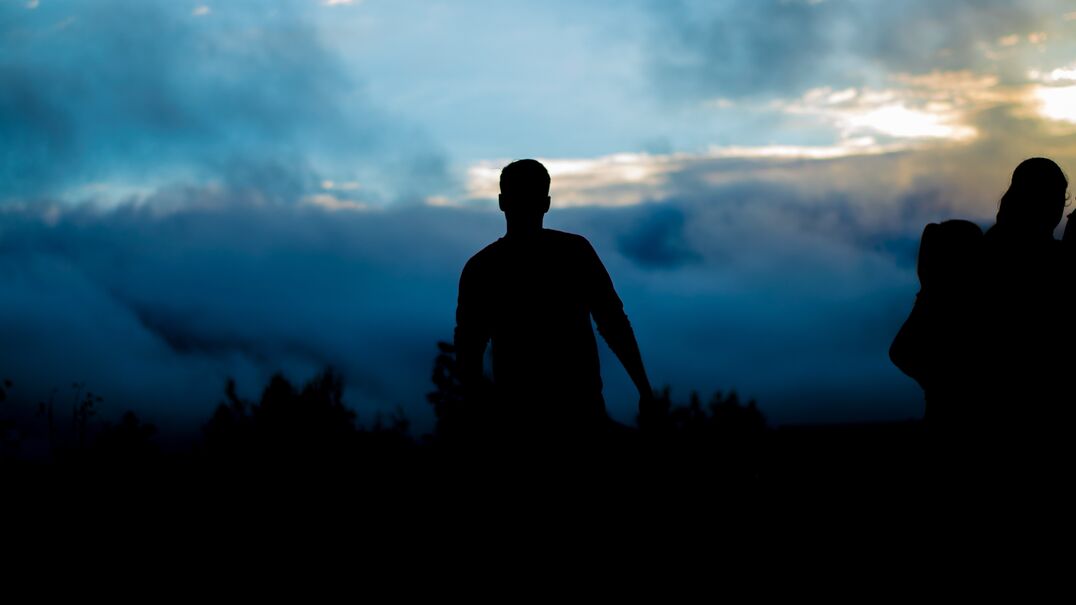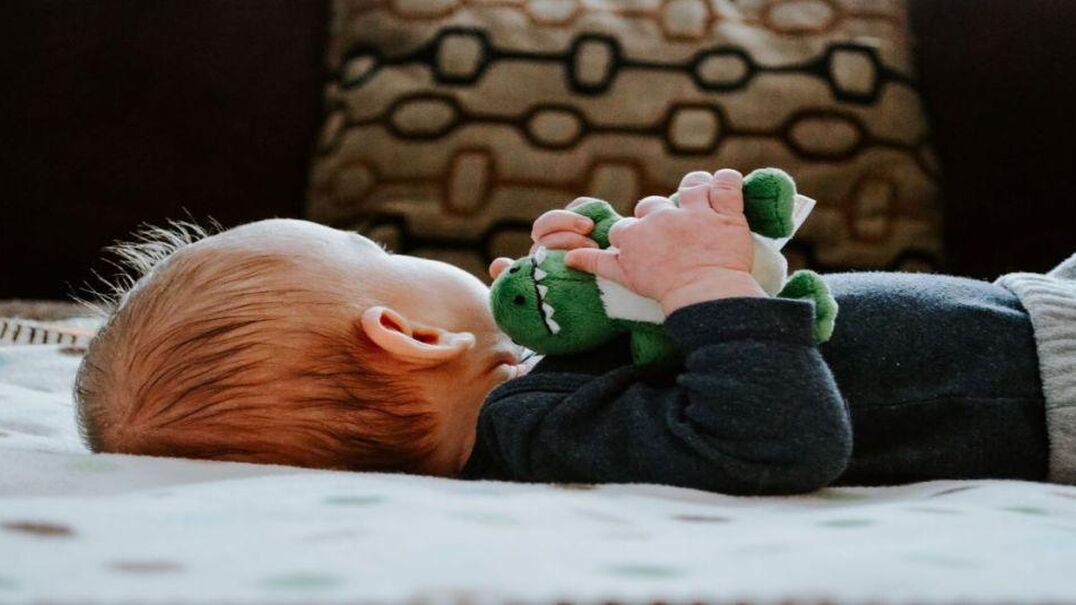Kaylee* is a lively and bubbly five-year-old who loves her hip-hop, jazz ballet dancing and swimming classes.
She lives with her dad, Nathan and her grandma on the Murray River in north-western Victoria.
Nathan experienced family violence as a child. He also used violence during his short relationship with Kaylee’s mum, Jessy. Shortly after Kaylee was conceived the relationship ended and Jessy soon moved to Melbourne with a new partner. Kaylee returned regularly to stay with her dad and his parents.
Jessy’s new partner also used family violence. Kaylee was physically injured by him several times, including broken bones. After a couple of years, Jessy left and returned home to north-western Victoria with Kaylee and her younger half-sister. Pregnant again, Jessy was struggling with her drug use and poor mental health. Kaylee was removed from Jessy and placed by Child Protection into the care of her dad and grandma.
Jessy is living locally but isn’t seeing Kaylee at the moment. She’s experienced her own trauma and still has problems with drugs. Both of Kaylee’s little sisters live with their father’s parents nearby. Kaylee sees her younger siblings very regularly and her family are all living on their traditional lands.
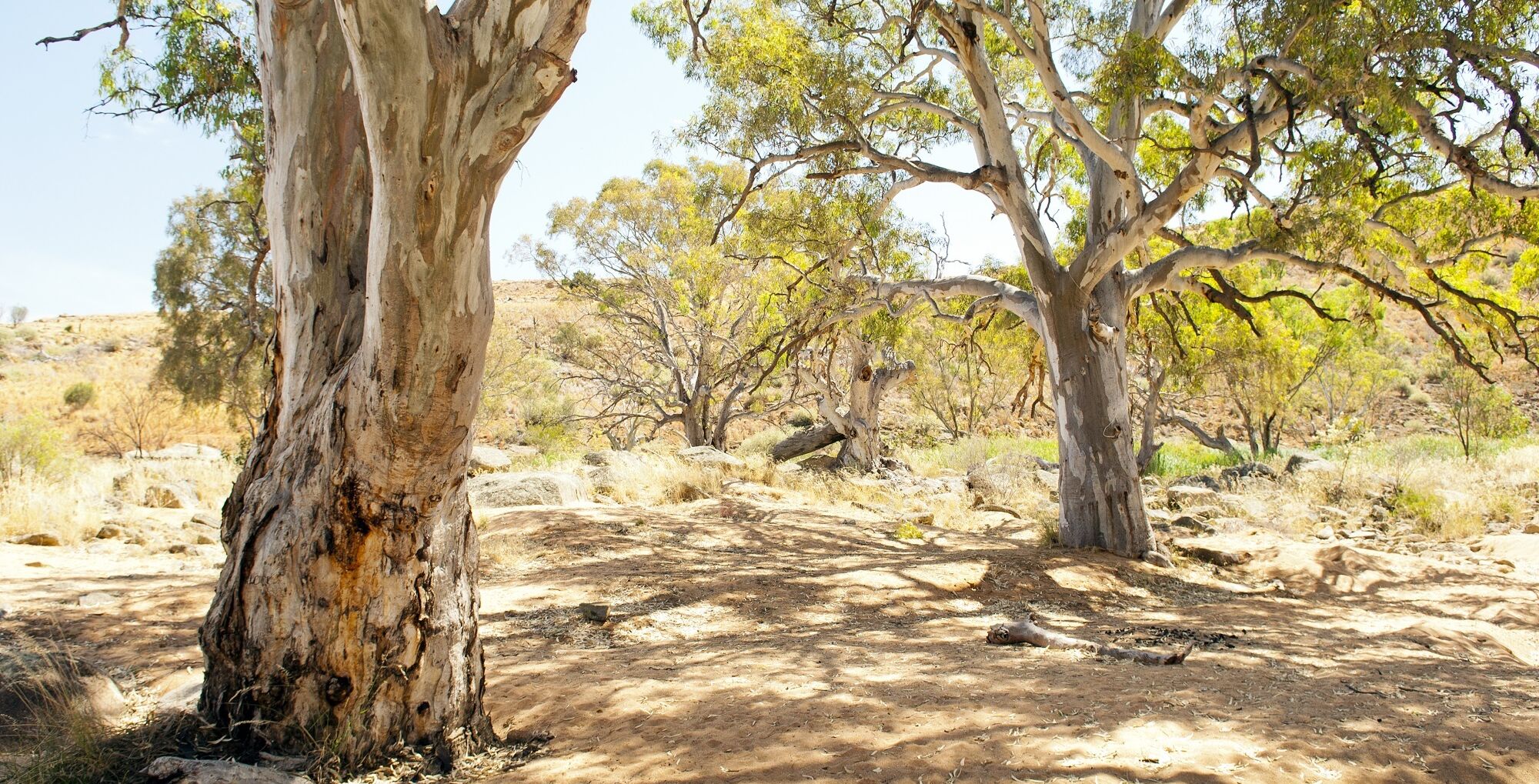
Recognising they needed help
When Kaylee first came to live with them, it wasn’t easy for any of them.
Kaylee was having a lot of problems with not sleeping because of nightmares and was hoarding food. She was hurting her dad and grandma with words, punches and kicks. She had trouble trusting adults, so was also really scared when she was separated from them.
Nathan had been seeing a psychologist for his own needs for quite a while. He’s suffered a lot of loss in his life, compounded by community sadness and grief around him. He was very aware of the family violence he experienced as a child and wanted something very different for his daughter. He was very thoughtful about his use of violence with Kaylee’s mum and felt his substance use was a contributor but not an excuse. He went to rehab and did a men’s behaviour change program just after Kaylee was born.
Nathan and his mum wanted support to help Kaylee. They were referred to Take Two’s Restoring Childhood service. Take Two clinician Sue has been visiting Kaylee and her family’s home since then, including meeting them under the carport in a COVID-safe way when needed.
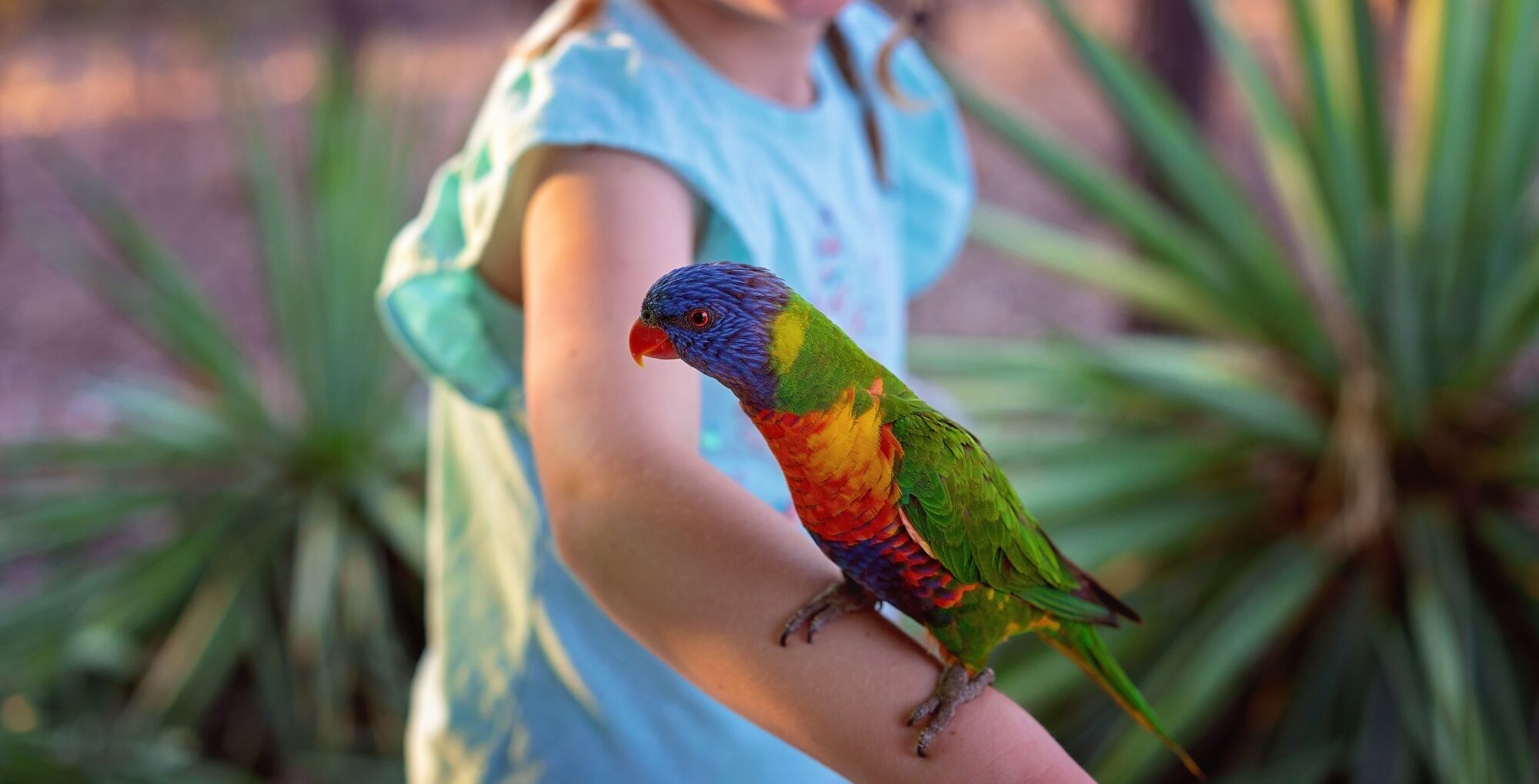
Storytelling as healing
Kaylee’s grandmother is a respected Elder, a natural storyteller and spiritually attuned nurturing woman. The family are members of a large well-connected Aboriginal community. Kaylee’s great grandmother has passed into the Dreamtime, but still plays an important and present role in the family looking over everyone. Early on, Kaylee’s dad and grandma invited Sue to their Aboriginal Family Led Decision Making conference. This gathering of the extended family provided an opportunity to discuss concerns and share ideas including the story of our healing practices. This assisted the extended family members to increase their understanding of the child’s behaviours as a result of what she’s experienced and make sense of her needs.
Nathan is quite sporty, and he plays lots of ball sports with Kaylee, which she’s good at and finds regulating. She’s very directive in what she wants to play with him. So, by allowing her to steer the play, Sue has been able to weave in games that tell stories allowing her to talk about when things were great but also when things were really bad.
‘I did a lot of work with Nathan to prepare him for the difficult things she was likely to tell him during these Child-Parent Psychotherapy sessions,’ Sue explains.
‘He was really angry that she’d been exposed to so much danger. There was a real theme of him not being there to protect her and he still feels really conflicted about there being no consequences for the people who harmed her. We talked about what he can do, which is be there for his little girl now.’
‘When I first started working with Kaylee and her family, I took a book called 'Once I Was Very Scared' which talks about what people do when they are emotionally dysregulated. The book was written overseas so the characters are skunks, chipmunks, elephants, hares and other animals. The storytelling nature of Child-Parent Psychotherapy really resonated with Kaylee’s grandma particularly. She turned the book into a story about Australian animals and about how they act when they are scared. She talks about how important it is for Kaylee to be attuned to the land and the animals, and to be able to see if they are scared. She talks about what the kangaroo, the emu, the echidna and the platypus do when they’re scared. She’s taken the story and made it culturally relevant which is really amazing.’
Holding Kaylee’s trauma
Sue has also started doing some EMDR sessions with Kaylee. EMDR is an evidence-based mental health intervention used to treat the PTSD Kaylee is experiencing. Kaylee shares stories of times she was really scared, hurt and alone and using EMDR, Sue has been able to help her reprocess some of those memories, so they aren’t so scary.
‘The idea of the work is to make myself redundant,’ Sue says.
‘It’s all about developing Kaylee’s relationship with Nathan, so that when she’s got a worry or a big feeling, she can go to dad and he can hold it with her. I explained the concepts of Circle of Security and he really liked that, so we weave that in and refer to it a lot.’
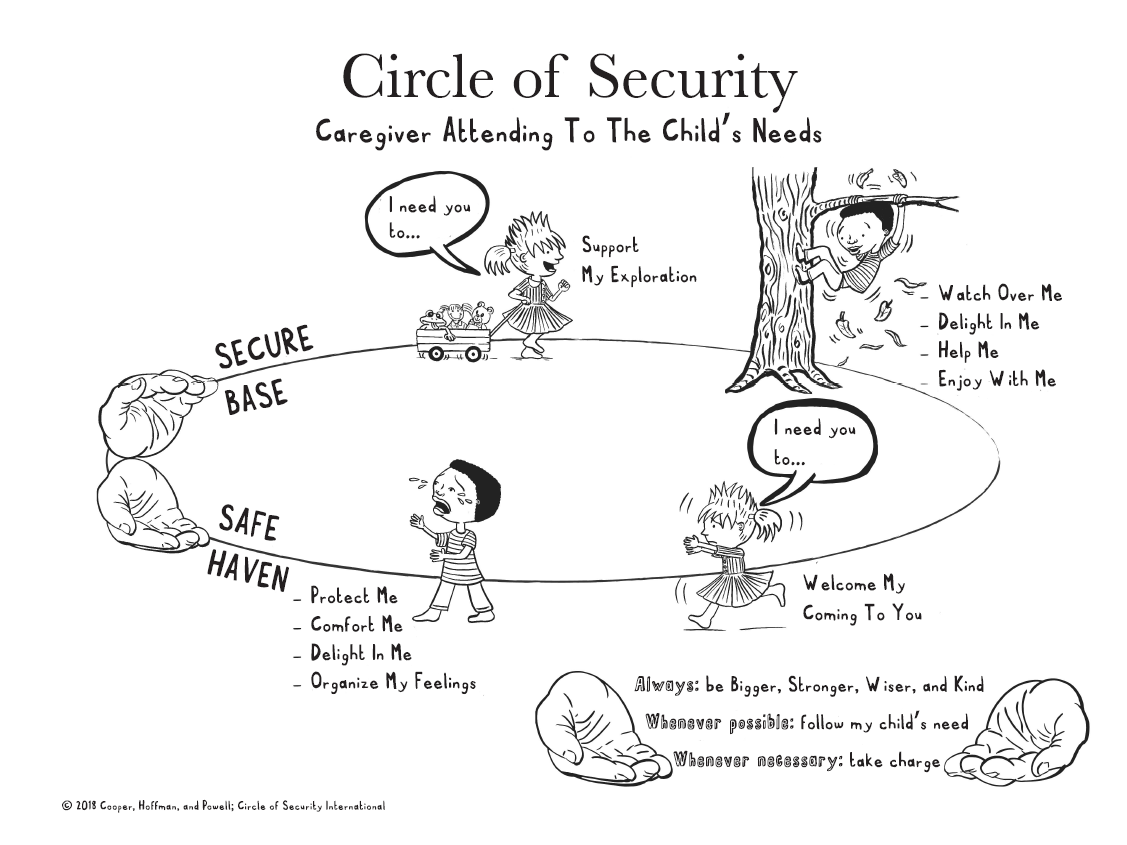
‘I’ve also done work with Nathan to help him understand the PACE model and explain how he can be playful, accepting, curious and empathetic with Kaylee and how that will help her feel better. She now understands that her dad isn’t going to turn away when she tells him about scary things, because he can handle it.’
‘A turning point came when I took the book ‘You Weren’t With Me’
to a session. Kaylee got a blanket, curled up on Dad’s lap, put her thumb in her mouth and asked me to stay quiet while Dad read it to her. Kaylee knew how important it was, and it brought Nathan to tears. Despite him not being there when she was scared, he had always been thinking about her and he was with her now.’
Moving in the right direction
‘She’s in Prep this year and it’s going well. She likes to be in control of games at school, which the other children find really hard. We’re practicing reciprocity of play, because she missed out on being taught how to take turns or share. She’s starting to develop some same-age friendships.’
‘Kaylee now turns to her dad for comfort from distress and support to problem solve… even the typical five-year-old unsolvable things like endless play time!’
Nathan carved an Emu egg to express his gratitude to Sue and her team for her support. He speaks openly about the story that he has etched into the egg, which is about feeling supported, guided and partnered with.
Sue says that seeing Kaylee starting to catch up developmentally as she recovers and receiving such a heartfelt gift is ‘the most beautiful feedback I could possibly receive’.
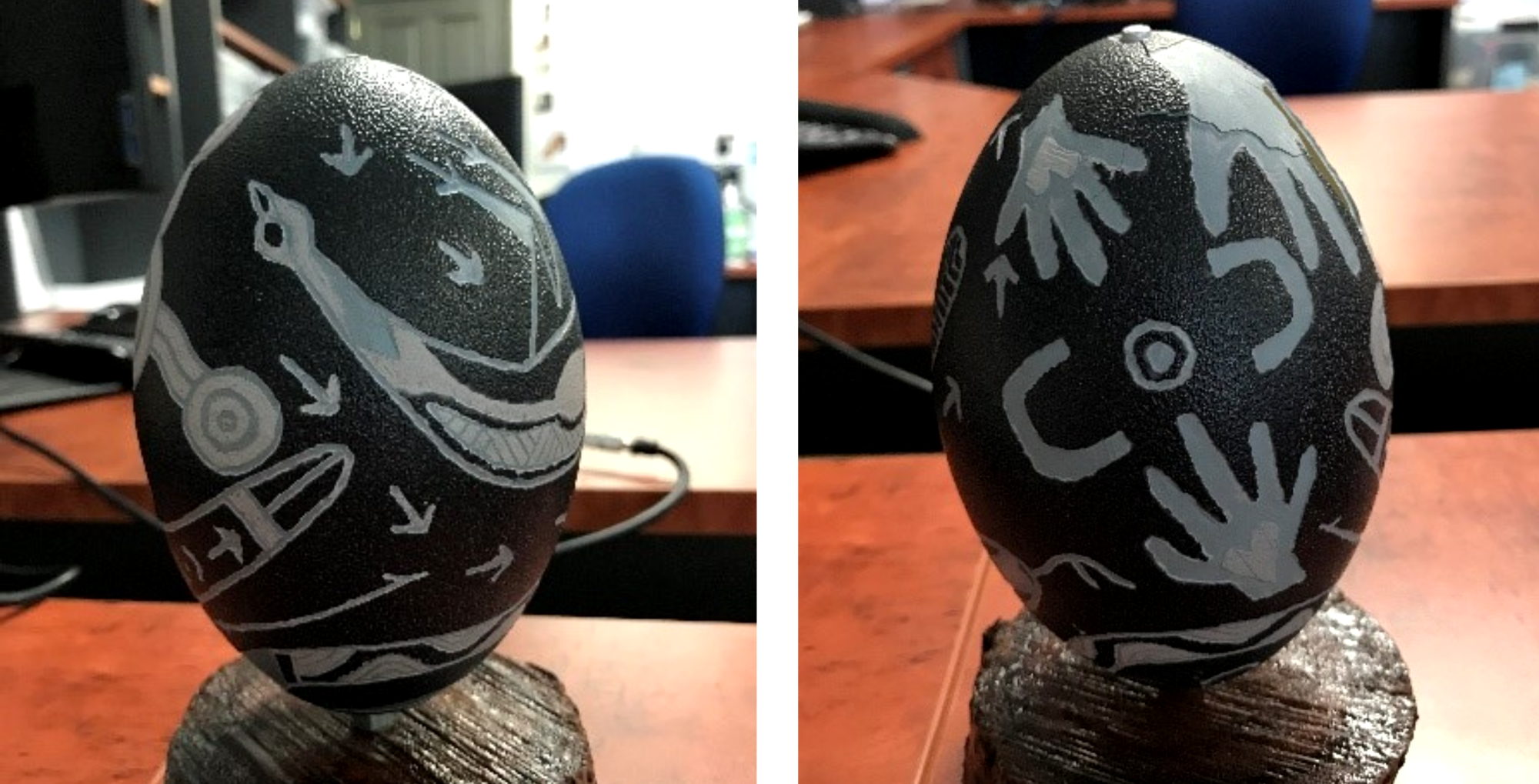
*The names of the children and the families we work with have been changed, and models are used in our photographs to protect their identities.
Berry Street’s Take Two program is a Victoria-wide therapeutic service helping to address the mental health impacts on children of the trauma they have experienced from abuse, neglect or adverse experiences. At Take Two we see who the child is, not just the behaviour.
We use clinical frameworks, neurobiological research and evidence-informed approaches to repair family relationships and develop networks of caring adults that focus on what the child needs.
Take Two can provide specialist clinical consultancy services to other organisations. Contact us for more information.


